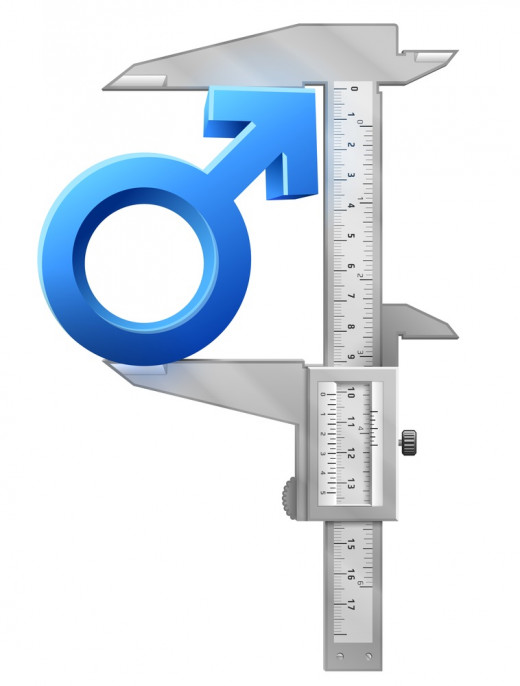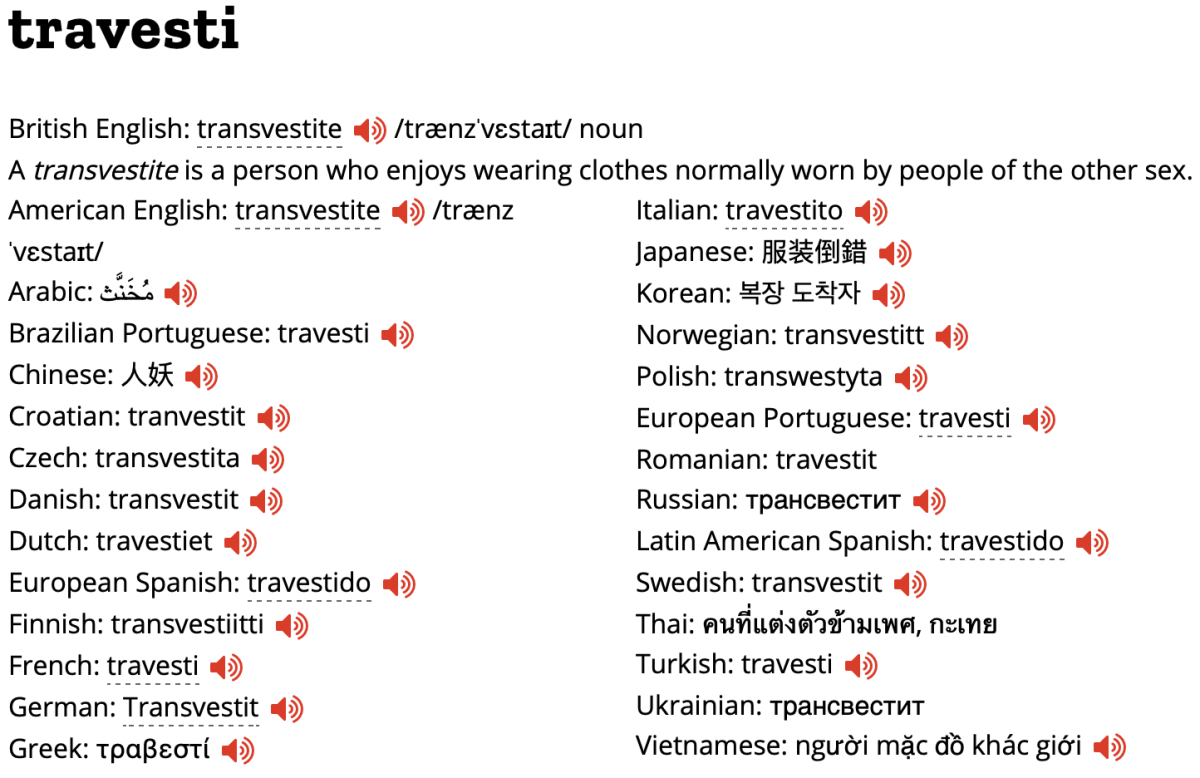Imprinting: Why This Transgender Man Feels Like A Man

This a story about how one trans-man feels. It does NOT represent how all trans-men feel. I simply wanted to address the question of how one can FEEL like a man. It is a query often asked by people who think that the only way a man can be a man is because of genitals. This is one way to feel like a man. There are many ways to feel like a man.
Imprinting…
We’re all familiar with ducks imprinting on the first thing they see. And that will be their “mother” for the rest of their life… even if it’s you or your dog or cat. Another example is songbirds. The need for a songbird to sing is instinctual, however we have found out that they have to learn what song to sing. Many species can only learn their song during the first few months… what is called the critical period for imprinting.
But an important question is do humans imprint?
The most obvious example of how humans might imprint is how we learn a language. We aren’t born with a language, but when we grow up it certainly seems to be a part of us. But if it’s a language that we learn later in life, then we rarely get to the same level of understanding. This is probably because imprinting has to occur at a young age. There are examples of people that don’t learn a language at all before puberty, and after that they can’t fully learn a language. Some researchers think it is because of the usually slow development of the prefrontal cortex in humans that we learn language so well when we’re young.
Imprinting actually changes our brains. It’s like hard-coding a computer program. An example of hard-coding is explicitly programming a certain number in the program, but in reality that number could change. A finished and compiled program can’t learn the new number if it changes. For ourselves, when the critical period of imprinting is over we can’t learn in the same way.

I also think that humans imprint gender.
Many people think that gender is the body your born with, but it’s actually in the mind; what we THINK about gender IS gender. It’s something that we internalize at such an early age that when we grow up we may forget that we ever learned it, no matter if we're cis or trans. That’s why some feminists say “Woman aren’t born; women are made.” Well, men are made too. Men and woman adopt all gender roles that go along with being men and woman. But I'm proposing that most of us don't merely adopt them… we indelibly inscribe them on our brains when we’re young.
Sociologists say that that we gender-identify at about the age of 3. That means that is when we first get an idea of which group we’re in: girls or boys (usually). After that we begin to “gender socialize”. But what is gender socializing? It’s not a matter of who we play with or what toys our parents buy for us… it’s just a matter of internalizing gender roles and rules. These gender rules are all around us… from our parents, siblings, friends, schools, community, religion, and the media. Many times we can’t see them; they are to adults like water is to fish. But to young children they are apparent. Children have just been born, and they have to figure out how to be. Their minds are not like adults; their brains are growing much faster. Between 4 and 7 years old they have strict interpretations of gender rules. They actively seek out gender rules, and I believe they are evolutionarily set up to imprint them. It would just make sense: we are, at our core, just animals. The most important thing to animals is procreation, and understanding which sex we are and what we have to do about it would be primary. But the “understanding” part is called gender.

I'll used myself as an example:
I can remember being about 4 and my ears would “prick up” when I heard someone comment on how boys should be. You don’t need to be told to your face what your gender rules are. I didn't act on my gender rules because someone told me to. I knew what gender I identified with, and I actively sought out my gender rules. I was born female, and I thought I was a boy. I internalized male rules. By the time I was 5 I knew that boys had to be strong and do hard stuff, shouldn’t cry, play with wood and hammers (girls play house), should never be like girls, grow up to have exciting jobs like race car driver and airplane pilot, don’t cook (because woman cook), marry girls, and be indestructible like Captain Scarlett [yes, I am that old]. I didn’t just know my gender rules… I feel all the male rules inside of me. I feel no women’s gender rules. I know this is true because I know what happens when you think you can’t live up to your gender rules: shame. Male shame is a common experience for men. We feel that we have to measure up to other men. I was told that I HAD to be girl, and somewhat learned how to act like it to fit in, but was never comfortable with it.
Because of the era in which I was born, if I had come out as a trans-boy at 5 years old I would probably have wound up in an insane asylum. It was pure survival instinct that I thought I could pretend to be a girl on the outside, and still be a boy on the inside. That led to a pretty confusing life. For example, I would look like the epitome of womanhood by sewing my own dresses, but the real reason I did that was to avoid thinking of myself as “pretty” by being “creative” instead. As you can see, people can do the same things for different motivations. Different gender rules produce different motivations. The gender rule: "you have to be strong" produces the motivation to prove that you’re are strong, thus making you stronger. I have all male gender rules, but when people think I’m a woman people often ascribe to me female motivations that aren’t there.
Now I’m an adult. I realize that some of the gender rules I have in me are just plain stupid. Some of them are downright dangerous. For example: The idea that men have to “go it alone”, and do it no matter how hard it is without asking for help because that would be admitting vulnerability. Well, really, that’s why so many men suicide. But no matter how much I think the rules are stupid, and can’t help feeling them. If I consciously try to go against it, I can, but I will always be conscious about it… perhaps self-conscious. If I go against them for a good reason… for example I just enjoy something that society perceives as feminine… perhaps I’ll feel good about it, but I also feel that I have to have a justification ready. I feel that way even though I am currently un-transitioned and few people know that I am transgender, so no one is going to call me out for being feminine. Still, I feel it just the same. The rules that I internalize are deep-rooted; you can’t dig them out and you can’t replace them with anything. No psychotherapy is going to turn me into a woman because I imprinted men's rules, not just adopted them.
Why did I gender-identify with boys in the first place? The world may never know. Scientists are looking into it, but they have no clear cut answers. They’ve done twin studies that point to it being partly genetic. They’ve done brain studies that say transmen’s brains are more like cis-men’s brains in various ways. They’ve done environmental studies, but haven’t found anything conclusive there.
But not why I wrote this article. I did it to explain why I feel like a man. I AM a man because I gender-identified that way, but why I feel like a man is another question. And I certainly can’t speak for other trans-men. But I feel like a man because I have many psychological things in common with men because my brain was permanently changed in the SAME WAY that cis men’s brains are: I imprinted male gender rules. And you can’t change that any more than you can change me from being a native English speaker into a native Japanese speaker. “Being a man” is a permanent part of me.

Additional articles about Gender that might be of interest:
- Male and female ability differences down to socialisation, not genetics | World news | The Guardian
Behavioural differences between the sexes are not hard-wired at birth but are the result of society's expectations, say scientists - Gender roles: Men and women are not so different after all
Gender is a large part of our identity that is often defined by our psychological differences as men and women. But a researcher says in reality men and women are more alike than we may think.








